Dreamers
I found the Summer 2015 issue very interesting and informative, which has been increasingly the case over the past few years. The “American Dreamers” feature got me thinking about a great use for this issue once I’ve finished it. In the past old issues have found a home on a coffee table shelf before they were recycled. This issue is bound for the waiting room of my physical therapist’s office where it may be browsed by an undocumented immigrant or someone who knows such a person, who in reading the Dreamers feature may use this information. Keep up the good work!
—Steve Lansdowne ‘ 71
Austin, Texas
I don’t believe I’ve ever missed a year donating to Pomona College since I graduated in 1976. My reasoning was that since someone paid for half my education, it was up to me to pay that back, and forward. But I have to admit a few years ago I did ask a Pomona fundraising person why I should still be donating, as Pomona has such a large endowment already. I never felt I really got a good answer until I read an article in The New York Times earlier this year, which I believe listed Pomona as having the fourth most economically diverse student body in the U.S. That was very gratifying.
And now I have a second reason—the Dreamers, as profiled in the recent issue of PCM. I love that my money is going to supporting these great young adults in their quest for high quality college education. As someone who has a conservative/libertarian bent, I am appalled at the racist and xenophobic immigration laws enacted in the last 130 years or so. From my perspective, these young adults are Americans in every sense of the word, so I’m proud to read that Pomona College feels as I do.
P.S. In a bit of irony, my conservative/libertarian political views were largely defined after taking a political science course from the late Dr. Krinsky, whose views were far to the left of where I ended up. When I hear people decry the liberal viewpoints nominally espoused in the typical college curriculum, I think they undersell the typical student’s underlying curiosity and convictions. I spent the semester arguing for Dr. Krinsky’s positions, as students often will, but in the end, I was not convinced. However, although Dr. Krinsky was a true believer in leftest ideals (the benevolent dictator), he invited a group of young libertarians to come speak to the class. He wanted us to hear opposing views, and for me it was a truly pivotal moment in my Pomona education.
—Steve Rempel ’76
Los Gatos, Calif.
The elegantly written piece, “American Dreamers,” expresses the highest aspirations of our College’s founders, of whom my great grandfather was its first dean. Investing in our future leaders, and in this matter, of our immigrant youth, is a passion I share. I am “invested” in this enterprise as a matter of carrying “our riches to all mankind” and have done so in teaching and adopting four of these immigrant kids.
—David Lyman, ‘66
South Pasadena, Calif.
Hurray for Introverts
There are many reasons I am happy to be a new Sagehen mother, one of them being the wonderful Pomona College Magazine. When my daughter Natalie McDonald ‘19 read your essay “The Power of Quiet,” she exclaimed with delight, “Yet another reason I am so excited to be going to Pomona College!” We had so many conversations about Susan Cain’s book, and I even wrote a post about our dinnertime conversations about it. We found it liberating and, as you observed, “reassuring” to understand and appreciate the special gifts of being introverted in an extroverted society. And then I read your recent essay “Stories Matter,” and all I could say to my husband Bill and Natalie was: “Wow…”
—Pamela Beere Briggs P’19
Los Angeles, Calif.
Memories of Little Bridges
Thanks for Professor Beeks’ wonderful tribute to Little Bridges. I was especially interested in his note that 1962 marked the beginning of annual collaborations between the choir and orchestra. In April 1962, I had the honor of performing as concertmaster of the orchestra in the very first such collaboration. Under the baton of Professor William Russell the combined forces of orchestra and chorus performed Brahms’ A German Requiem (in English, interestingly enough) for a full house in Little Bridges. As noted by Professor Beeks, we actually had to build an extension of the stage to accommodate all the musicians for that concert, but Bill Russell had the vision to make it happen and to continue the tradition thereafter.
My other favorite memory of Little Bridges and of Bill Russell is from the concert presented in the same year by the band. Professor Russell wanted to do a program for winds, and I suggested that he include the Second Suite for Military Band of Gustav Holst. This piece includes the “Song of the Blacksmith,” featuring a part for (what else?) an anvil. As a violinist, I didn’t normally play in symphonic bands, but Professor Russell invited me to sit in on anvil for this concert. Once we located an actual anvil for the purpose it turned out neither of us liked the sort of clanky sound it made. Then he remembered that he had a 3-foot length of railroad rail at his house. We hung it from one of those beautiful side balconies over the stage, and I rendered my first (and only) performance with concert band using a large hammer on the stage of Little Bridges Hall of Music. What a glorious, ringing sound it was!
Thanks again for the memories, and Happy Centennial to Little Bridges.
—Paul Bent ’65
Long Beach, Calif.
I found this most recent issue of PCM a particularly good and interesting one. I recall Graydon Beeks leading the tenors and baritones/basses of the choir to learn the new music. This was 1982–1984; 1985–1986, when I sang tenor in the P.C. choir. (The choir director Jon Bailey assisted the sopranos and altos to learn their parts.) But when I read Beeks’ article, that opens the issue, I was really pleased to find that his organ teacher was Doc Blanchard, because my mother, Margaret Lindgren (née Fuller), a Pomona alumna, has often told me the (true) story of Doc Blanchard, who was organist of the Claremont Methodist Church, having to leave in the middle of the Sunday morning church service to go put out fires as he was on the Claremont Fire Brigade!
Especially meaningful to me in this issue, however, is the large section on undocumented students, including the as-yet unpassed DREAM Act and DACA, which President Obama pushed through and still stands, allowing undocumented individuals, under specific circumstances, to remain in the Unites States with full legal protection and renewal every two years, even though they are not granted U.S. citizenship. Citizenship is what the President would really like to see, but cannot without the full backing of the Congress. This act is truly bipartisan, with both Democrat and Republican Congressmen originating and voting for it.
Finally, I thank you for posting my most recent volume, The Wood of Green: Poems, Stories, and Studies. You have done a good synopsis except, I think, regarding the studies or essays. There are only several studies that are of a philosophical nature. Most are human-experiential studies concerning human and divine. I do understand the difficulty to bring all this into focus in such few words.
I enjoyed reading this entire issue; it is one of the best I have read since I began receiving PCM many years ago (over 25 years).
—Alan Lindgren ’86
Culver City, Calif.
More Walton Memories
Thank you, Judy Bartels, for your letter about Jean Walton. In my time at Pomona she was important to women for her skill and caring as dean of women and because she was a rarity, a female professor (mathematics). Mark Wood tells us that stories are important, so I want to share one. One day Dean Walton joined a group of women students for coffee in the village and we began to talk about math and how puzzling it was for many. Dean Walton enjoyed the conversation and began answering questions. I mentioned that I had noticed dividing by whole numbers yielded smaller numbers while dividing by fractions did the opposite. She gave a simple, elegant explanation that differed so from my experiences in math classes that I was charmed. I pondered this for some time and 20 years later, when I decided to teach, I chose secondary math. I hoped to open the door for others that Dean Jean had opened for me. I am retired now, but in my community I am often introduced as “the math teacher” because, I hope, I was able to discover ways to do that for my students. Teachers often have no idea of their impact, and Dean Walton never knew about my teaching, but if I was able to open some doors, I think she would be pleased.
—Frances DuBose Johnson ‘54
Newbury Park, Califirnia
[Alumni and friends are invited to email letters to pcm@pomona.edu or “snail-mail” them to Pomona College Magazine, 550 North College Ave., Claremont, CA 91711. Letters may be edited for length, style and clarity.]
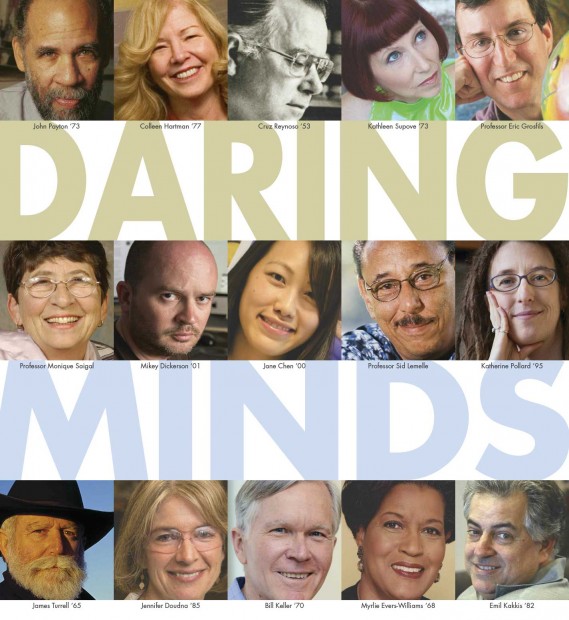

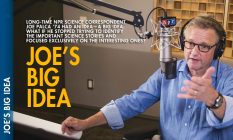
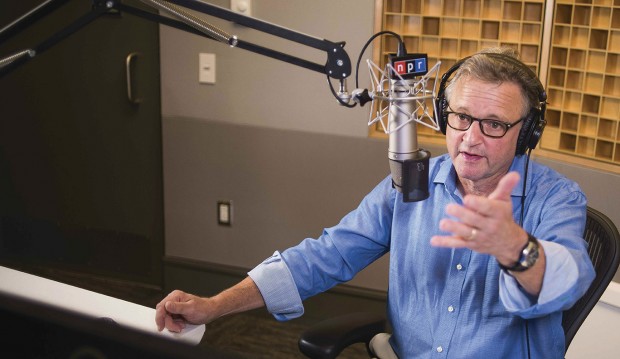 Joe Palca’s cubicle in NPR’s Washington, D.C., headquarters is strewn with bicycle gear from his daily commute, assorted piles of books about science, and random objects: a can of mackerel, a leaf-shaped bottle of maple syrup. From this cluttered perch, the longtime science correspondent has the power to shape what becomes news. If Joe Palca ’74 decides a story is worth putting on the air, roughly a million listeners hear it. And if he misses a story, well, some of those listeners may never hear about it.
Joe Palca’s cubicle in NPR’s Washington, D.C., headquarters is strewn with bicycle gear from his daily commute, assorted piles of books about science, and random objects: a can of mackerel, a leaf-shaped bottle of maple syrup. From this cluttered perch, the longtime science correspondent has the power to shape what becomes news. If Joe Palca ’74 decides a story is worth putting on the air, roughly a million listeners hear it. And if he misses a story, well, some of those listeners may never hear about it.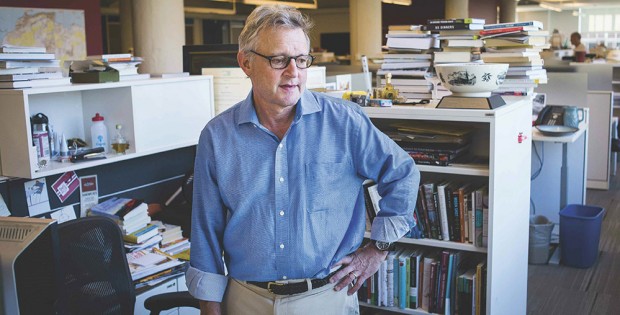 Of course, not all subjects have such inherent drama. Still, Palca says, scientists are not the cold-blooded, calculating creatures they are often presumed to be. “I’m sick of the caricature, of the white lab coat. The lab coat says ‘I’m an expert, not a person.’”
Of course, not all subjects have such inherent drama. Still, Palca says, scientists are not the cold-blooded, calculating creatures they are often presumed to be. “I’m sick of the caricature, of the white lab coat. The lab coat says ‘I’m an expert, not a person.’”
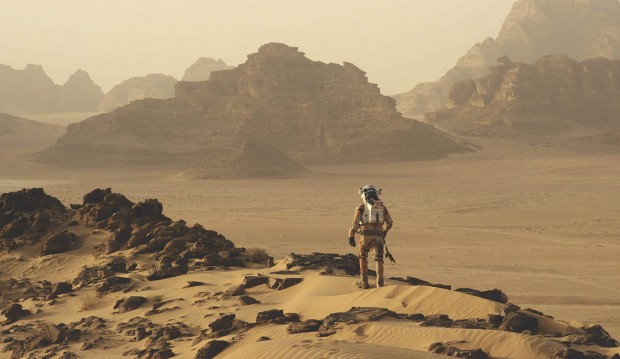
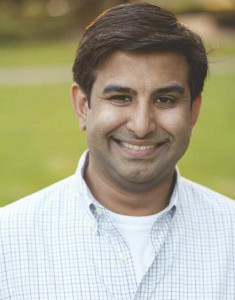

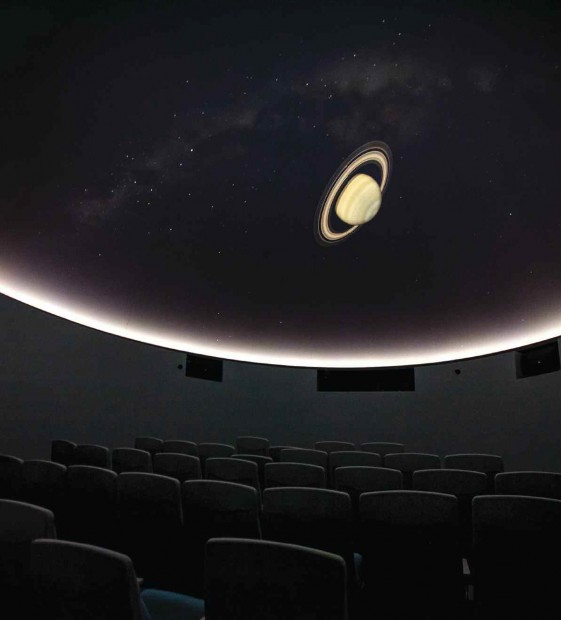

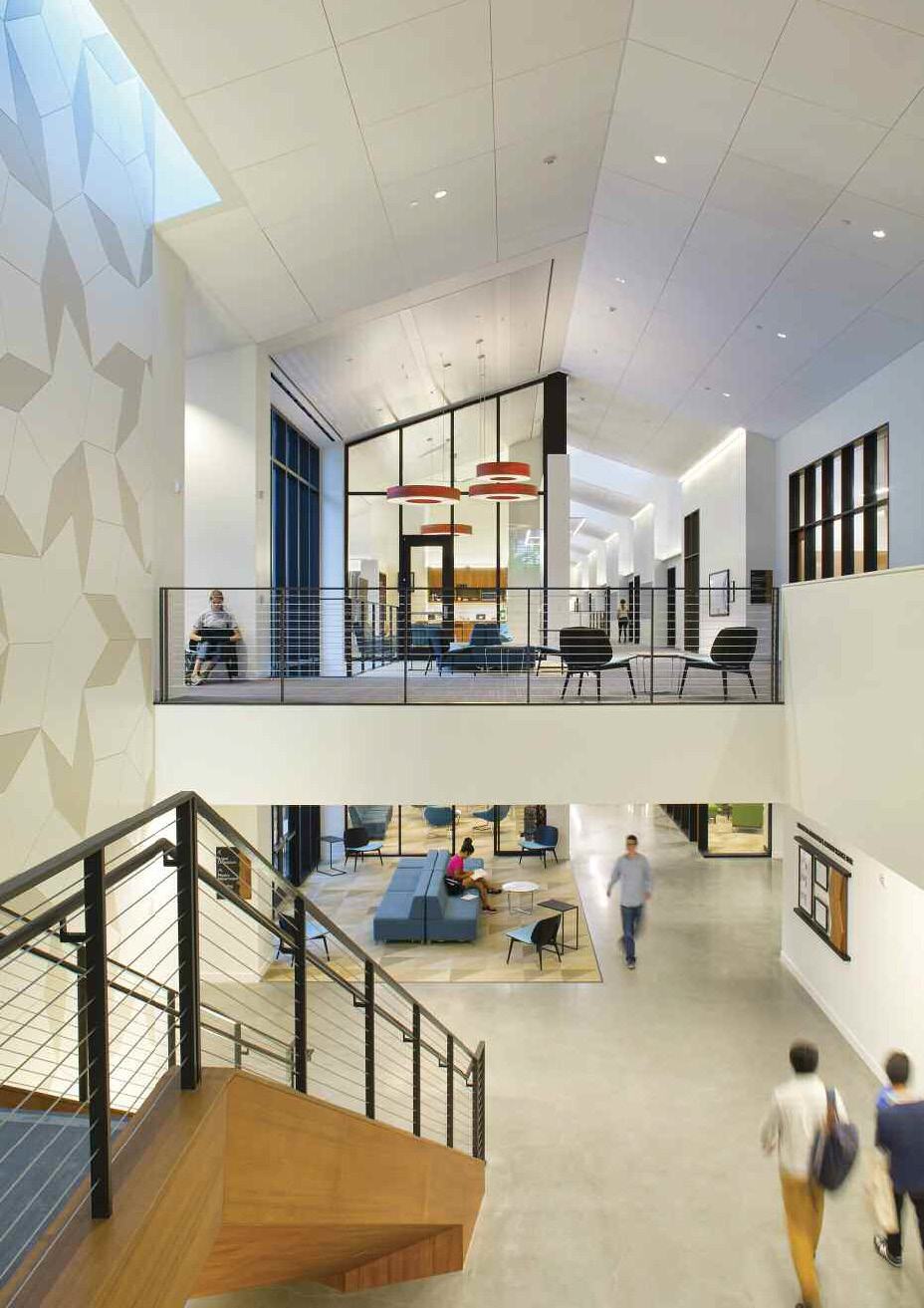
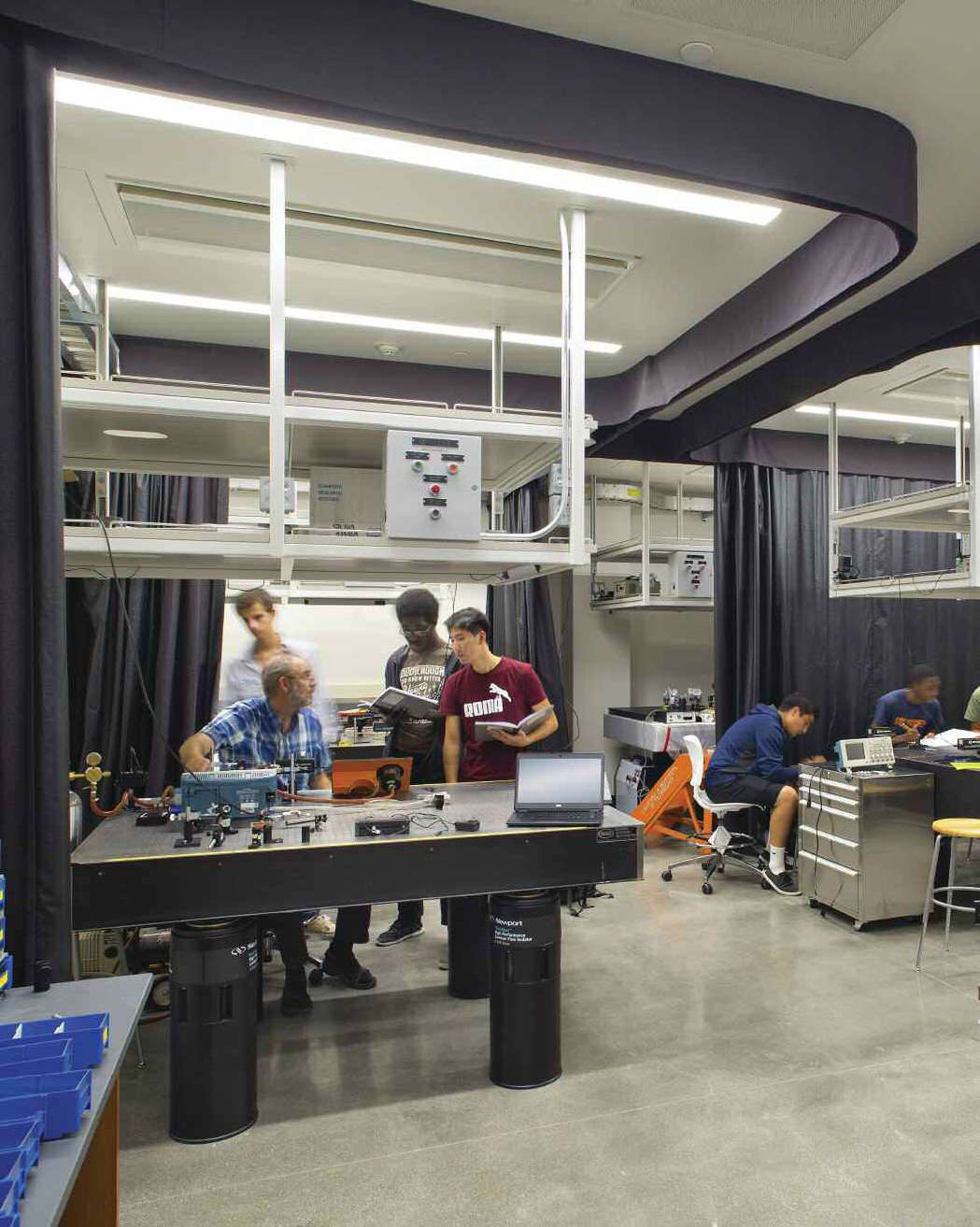
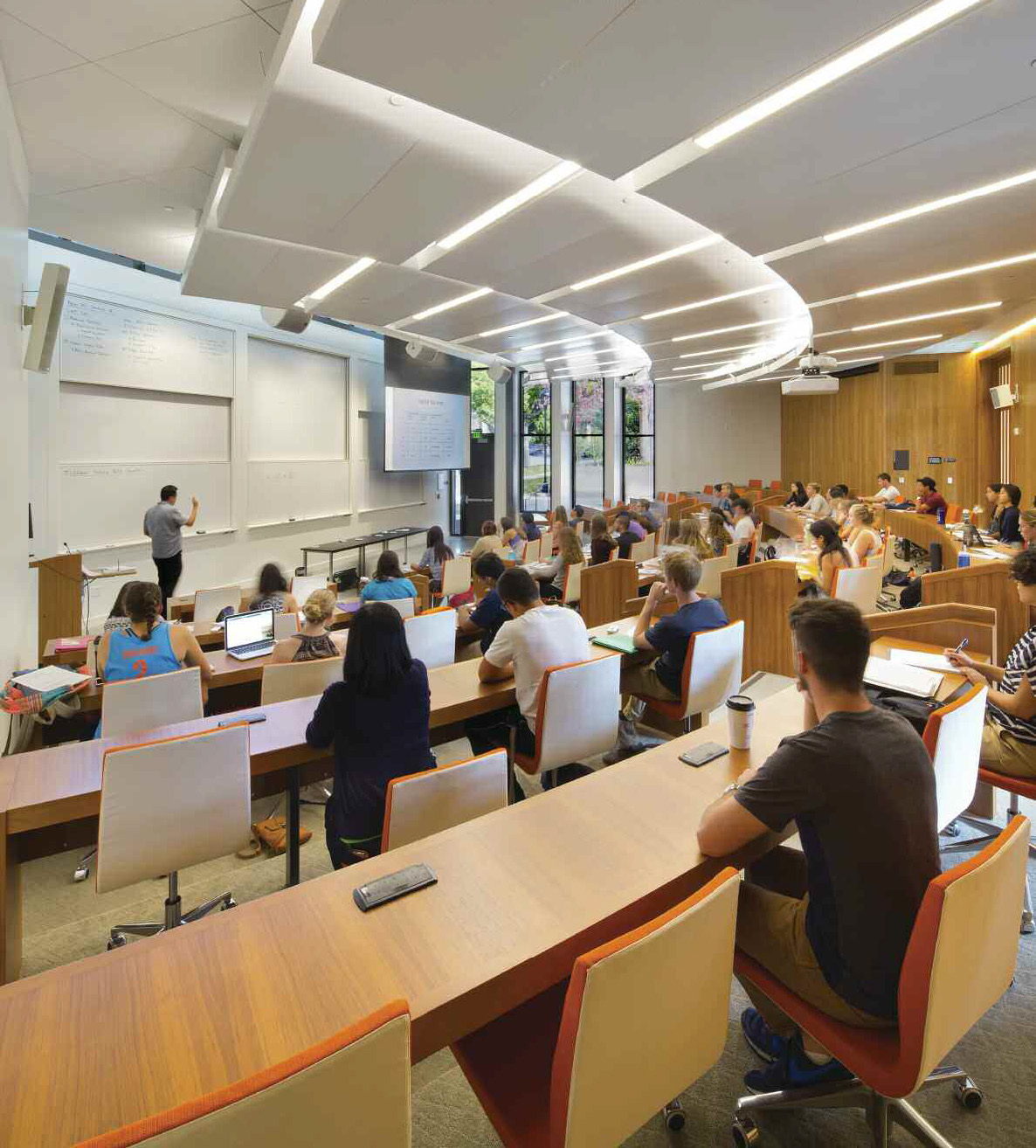
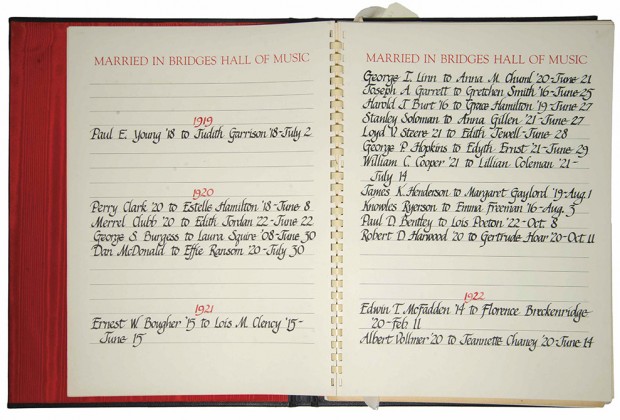 As Bridges Hall of Music celebrates its centennial, many Pomona alumni look back fondly at the place where they said “I do.” The Little Bridges Wedding Register is a historical record of marriages that took place in the building, starting with Howry Warner 1912 and Mary Roof 1912, married June 1, 1916. Compiled in the early 1970s, the register was maintained and updated through 1992 and includes the names of 453 couples.
As Bridges Hall of Music celebrates its centennial, many Pomona alumni look back fondly at the place where they said “I do.” The Little Bridges Wedding Register is a historical record of marriages that took place in the building, starting with Howry Warner 1912 and Mary Roof 1912, married June 1, 1916. Compiled in the early 1970s, the register was maintained and updated through 1992 and includes the names of 453 couples.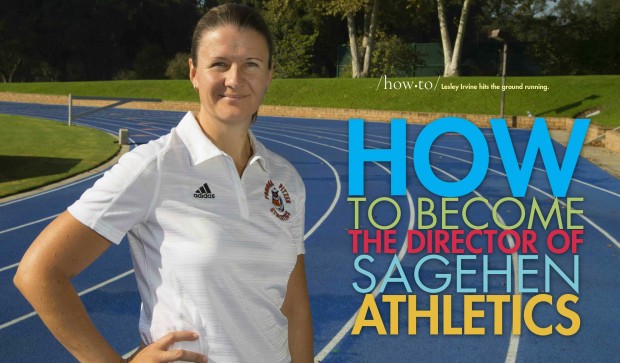 There’s nothing particularly surprising in the fact that Pomona-Pitzer’s new athletic director has hit the ground running. Lesley Irvine has been moving fast ever since she was a child—first as a multi-sport athlete, then as a high-profile coach and finally as an athletic administrator. At Pomona, she has assumed a newly created full-time position as chair of Pomona’s Physical Education Department and director of the joint athletic program of Pomona and Pitzer colleges.
There’s nothing particularly surprising in the fact that Pomona-Pitzer’s new athletic director has hit the ground running. Lesley Irvine has been moving fast ever since she was a child—first as a multi-sport athlete, then as a high-profile coach and finally as an athletic administrator. At Pomona, she has assumed a newly created full-time position as chair of Pomona’s Physical Education Department and director of the joint athletic program of Pomona and Pitzer colleges. Grow up in Corby, a steel town in central England where most people are of Scottish descent and speak with a Scottish brogue. Develop into an active child, always sporting a scraped knee. Get involved in athletics with the encouragement of your dad, an avid soccer player, coach and fan.
Grow up in Corby, a steel town in central England where most people are of Scottish descent and speak with a Scottish brogue. Develop into an active child, always sporting a scraped knee. Get involved in athletics with the encouragement of your dad, an avid soccer player, coach and fan. Join a track and field club at the age of 9 and, since you excel in a range of athletic events, specialize in the heptathlon. In high school, find yourself playing almost every sport, from basketball to volleyball to soccer. Discover the game of field hockey and fall in love with it.
Join a track and field club at the age of 9 and, since you excel in a range of athletic events, specialize in the heptathlon. In high school, find yourself playing almost every sport, from basketball to volleyball to soccer. Discover the game of field hockey and fall in love with it. Accept an invitation to play on the English junior national field hockey team at the age of 16, while also competing internationally in the heptathlon. Play for England in a victory over Scotland in the Six Nations field hockey tournament and have to explain to your teammates why your dad, a proud Scot, is rooting against you.
Accept an invitation to play on the English junior national field hockey team at the age of 16, while also competing internationally in the heptathlon. Play for England in a victory over Scotland in the Six Nations field hockey tournament and have to explain to your teammates why your dad, a proud Scot, is rooting against you. Become the first member of your family to go to college, playing field hockey at prestigious Loughborough University. While there, win five national championships. During your second year, teach tennis at a summer camp in Maine (though you’ve never touched a tennis racquet before) and find yourself at home in American sports culture.
Become the first member of your family to go to college, playing field hockey at prestigious Loughborough University. While there, win five national championships. During your second year, teach tennis at a summer camp in Maine (though you’ve never touched a tennis racquet before) and find yourself at home in American sports culture. After graduating, come back to the U.S. for graduate school, attending the University of Iowa and playing competitive field hockey for one more year, scoring the only goal in a 1–0 victory over Stanford University in your first trip out West and leading your team to a Final Four appearance. Earn your master’s degree in health, leisure and sports studies.
After graduating, come back to the U.S. for graduate school, attending the University of Iowa and playing competitive field hockey for one more year, scoring the only goal in a 1–0 victory over Stanford University in your first trip out West and leading your team to a Final Four appearance. Earn your master’s degree in health, leisure and sports studies. Return to Stanford as assistant women’s field hockey coach. Discover that you love working with committed student athletes who love sports as much as you do. After two years, succeed the retiring head coach and spend eight years at the helm of Stanford’s elite program, guiding them to three straight NorPac championships.
Return to Stanford as assistant women’s field hockey coach. Discover that you love working with committed student athletes who love sports as much as you do. After two years, succeed the retiring head coach and spend eight years at the helm of Stanford’s elite program, guiding them to three straight NorPac championships. Leave Stanford to enter sports administration, spending five years at Bowling Green State University and rising to the rank of senior associate athletic director. Decide the job at Pomona-Pitzer is a perfect match for your abilities and your desire to help build something special for talented and motivated student-athletes while promoting wellness for a whole community
Leave Stanford to enter sports administration, spending five years at Bowling Green State University and rising to the rank of senior associate athletic director. Decide the job at Pomona-Pitzer is a perfect match for your abilities and your desire to help build something special for talented and motivated student-athletes while promoting wellness for a whole community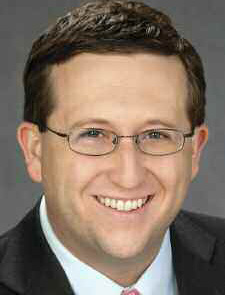 Board Chair Samuel D. Glick ’04
Board Chair Samuel D. Glick ’04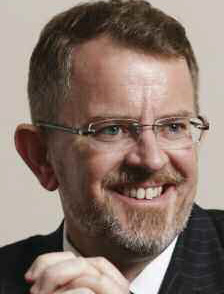
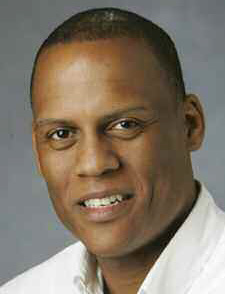
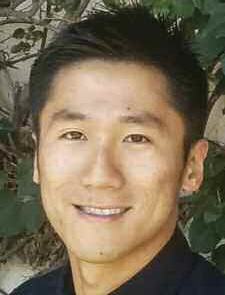
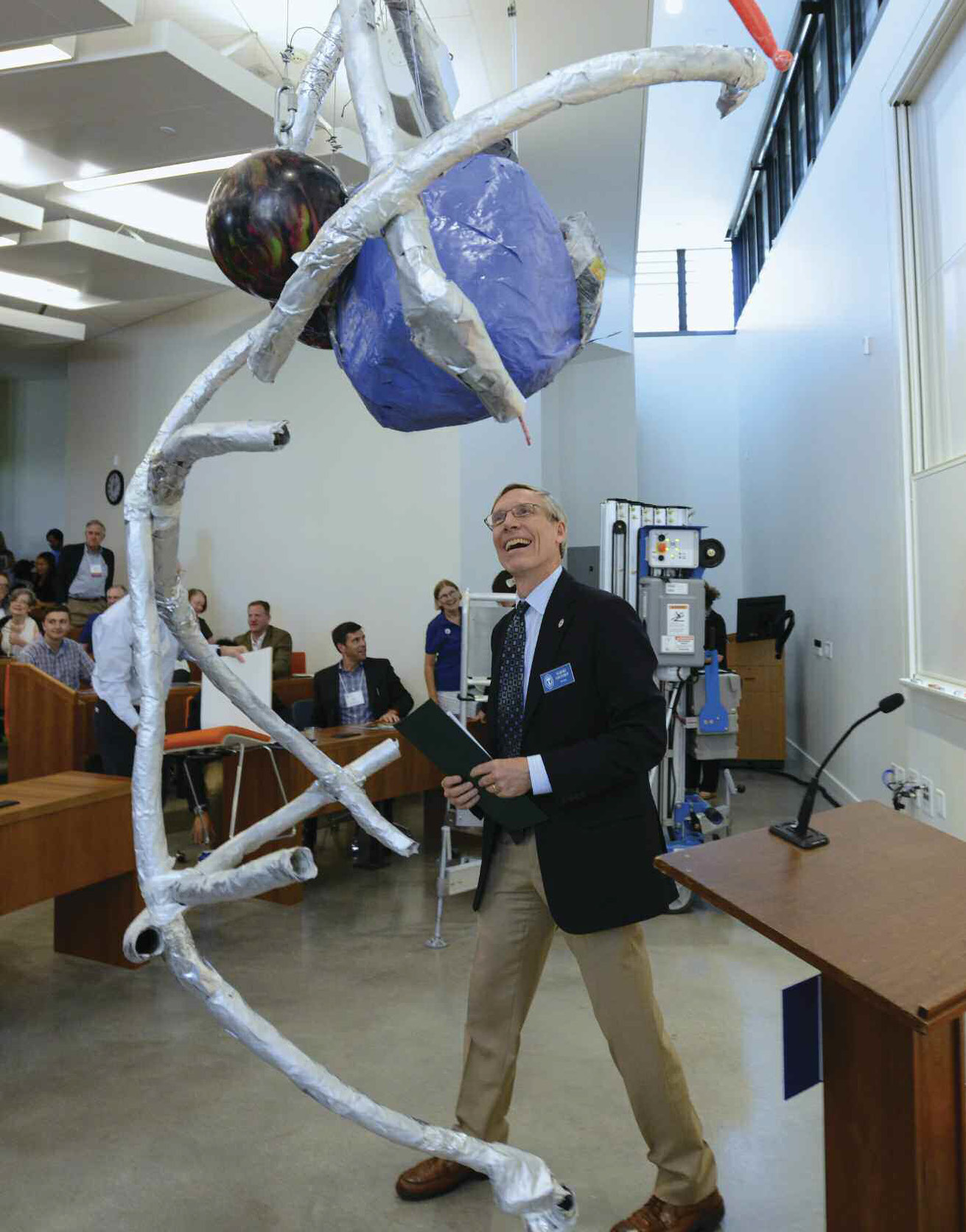
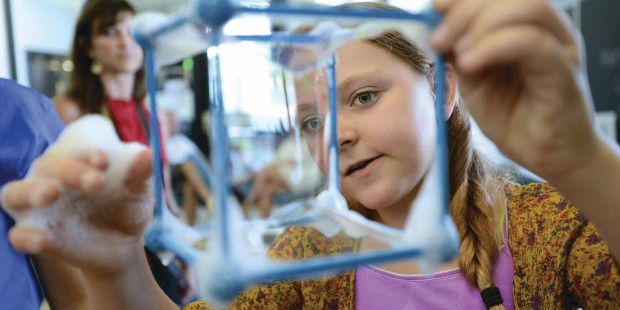
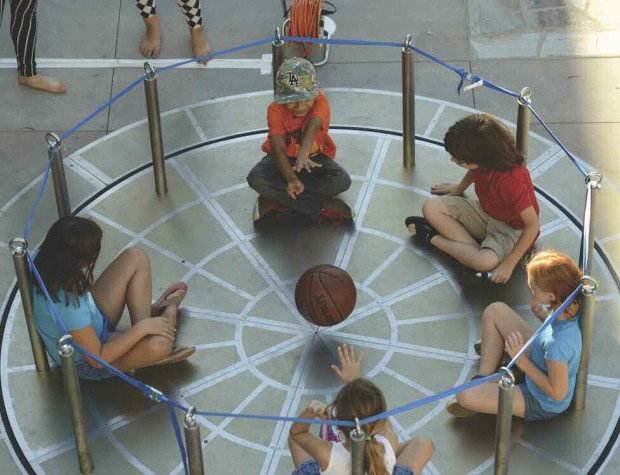
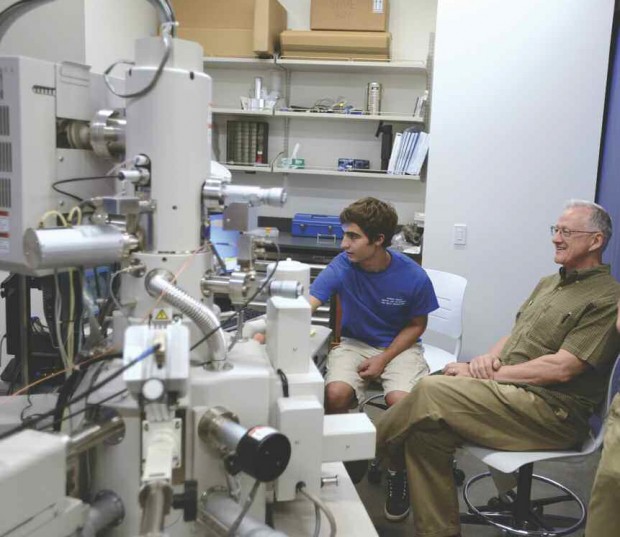
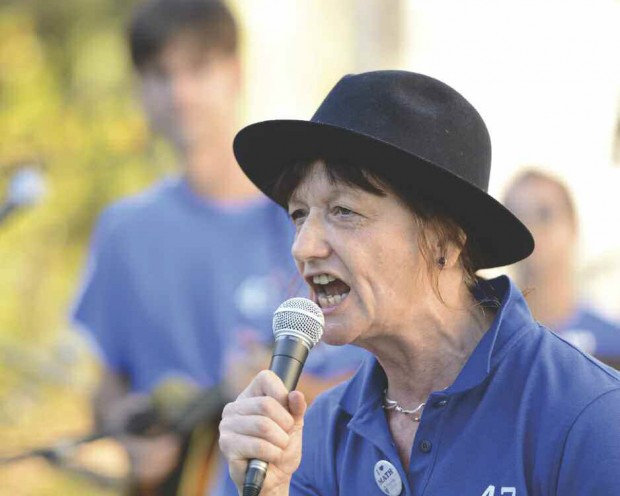
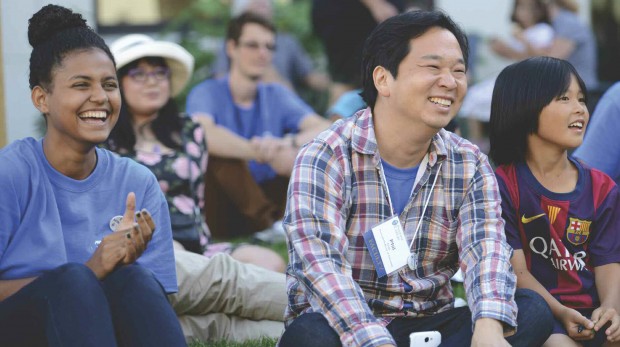
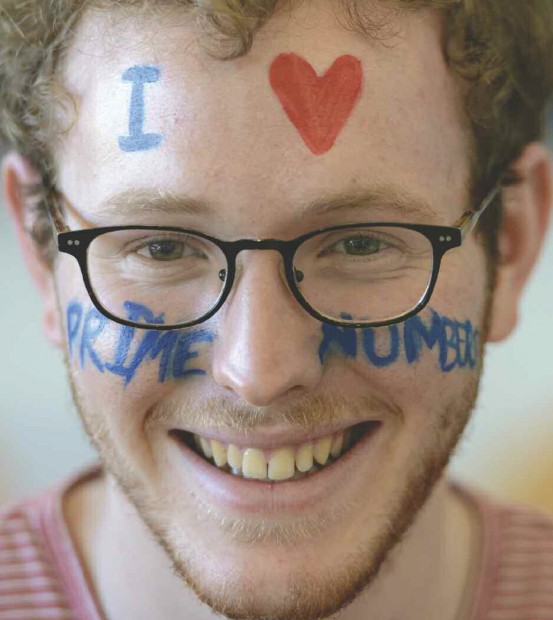
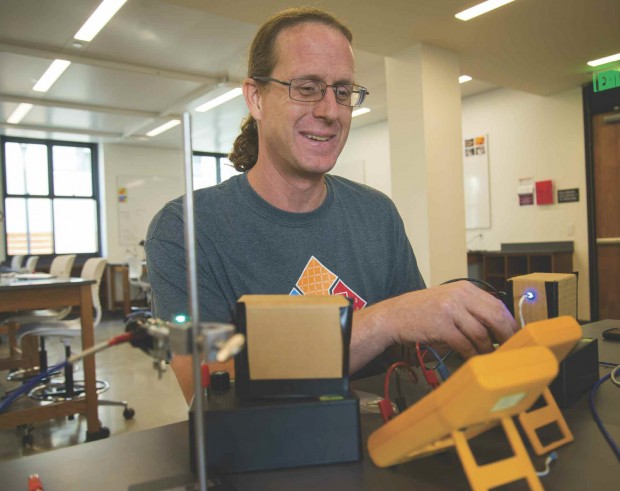 If you are ever offered a tour of the new Millikan Laboratory and Andrew Science Hall with David Haley as your guide, take it. A 21-year veteran of physics departments, he has an enthusiasm for his subject that is nonstop and infectious. Completely at ease in the corridors of Millikan’s new underground laboratory, he misses no opportunity to point out the fascinating creations of Pomona students and faculty.
If you are ever offered a tour of the new Millikan Laboratory and Andrew Science Hall with David Haley as your guide, take it. A 21-year veteran of physics departments, he has an enthusiasm for his subject that is nonstop and infectious. Completely at ease in the corridors of Millikan’s new underground laboratory, he misses no opportunity to point out the fascinating creations of Pomona students and faculty.